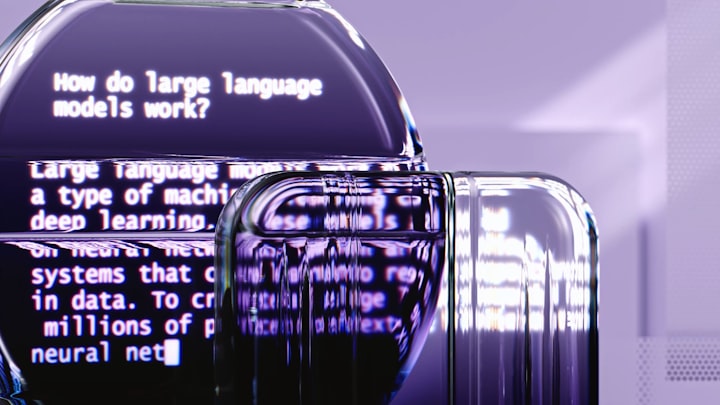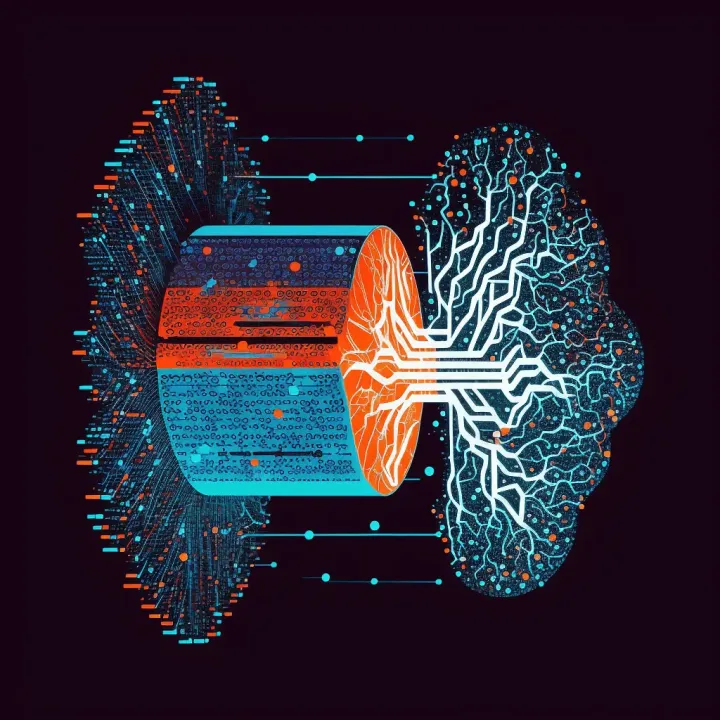AI-assisted decision-making results delivered in weeks
AI-assisted decision-making can transform your business by delivering results in just a few weeks. Discover the power of machine learning, big data analytics, and automation, and how they can help your business make more informed decisions, improve operational efficiency, and drive innovation.
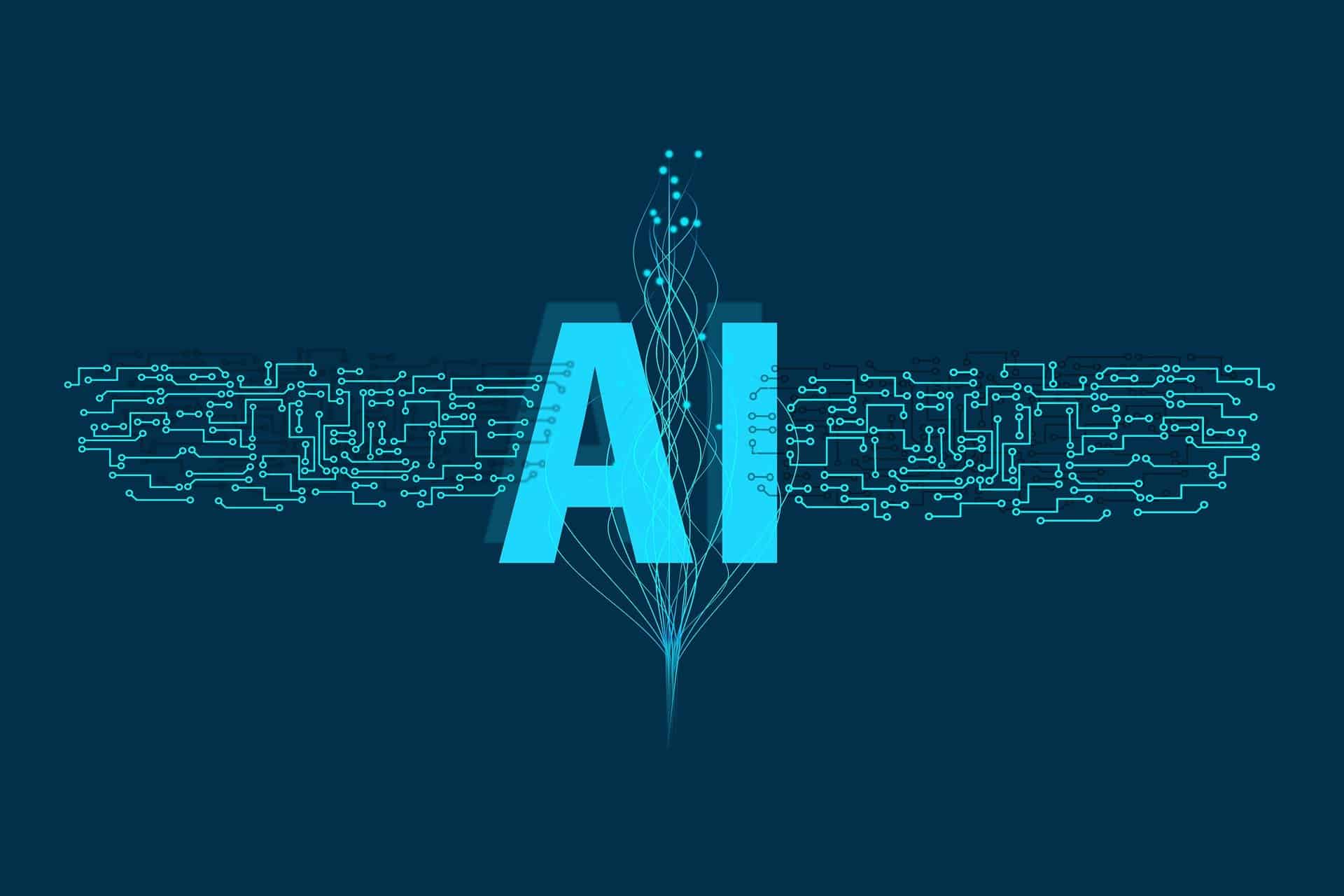
Solve business problems with AI with a quick turnaround. Our state-of-the-art AI platform enables organizations like yours to rapidly solve business problems with AI for virtually any use case, transforming your organization, customers, communities, and the world.
Our AI team of data scientists, analysts, and developers work with you to make world-class AI models and applications and deliver results to business users in a few weeks.
The Platform
Our single integrated AI platform can deliver endless solutions for your use cases. So go beyond just building models. But don't stop at modeling.
Automate the entire data science lifecycle instead, from creating AI with any data to running and regulating it throughout the organization to innovating by sharing and utilizing AI applications to influence decisions.
Our AI platform is a cloud-based enterprise AI software platform that enables businesses to rapidly build, deploy, and operate AI applications at scale. The platform combines AI capabilities, including machine learning, big data analytics, and data management, with industry-specific applications and development tools to deliver a comprehensive solution for creating intelligent applications.
The core platform includes several key components, such as:
- Data Integration: The platform provides a range of connectors and APIs for integrating data from various sources, including enterprise systems, sensors, and IoT devices.
- Data Management: The platform includes a suite of tools that enable businesses to store, manage, and analyze large volumes of data, including structured and unstructured data.
- AI Development Tools: The platform provides various development tools, including libraries, APIs, and code templates, that enable developers to build custom AI models and applications.
- Industry-Specific Applications: The platform includes pre-built, pre-configured industry-specific applications that address the unique needs and challenges of various enterprises, such as government, energy, financial services, and healthcare.
- Analytics and Visualization: The platform includes various analytics and visualization tools that enable businesses to derive insights from their data and make informed decisions.
The AI platform is designed to be highly scalable, flexible, and configurable, enabling businesses to rapidly develop and deploy AI applications that can drive innovation and improve business performance. With advanced AI capabilities and industry-specific applications, the AI platform is a leading solution for organizations seeking to harness the power of AI to transform their businesses.
IoT, Fog and Edge Computing
IoT (Internet of Things) and Edge computing are two related technologies transforming how we collect, process, and analyze data. IoT refers to the network of physical devices, vehicles, and other objects embedded with sensors, software, and connectivity, enabling them to collect and exchange data. Edge computing, on the other hand, refers to the processing and analyzing of data closer to the source rather than sending it to a central location for processing.
IoT and Edge computing are closely linked, as Edge computing enables IoT devices to process and analyze data in real-time, enabling faster and more accurate decision-making. In addition, by processing data at the Edge, organizations can reduce latency, improve security, and minimize bandwidth usage, with added vital benefits such as:
- Improved efficiency: By processing data closer to the source, organizations can reduce the time and resources needed to transmit and process data, enabling more efficient operations.
- Real-time decision-making: Edge computing enables IoT devices to process data in real-time, allowing organizations to make faster, more accurate decisions based on real-time data.
- Enhanced security: Edge computing can help improve the security of IoT devices by reducing the amount of data transmitted over the network and minimizing the risk of cyberattacks.
- Scalability: IoT and Edge computing enable organizations to scale their operations by processing and analyzing data in real-time, allowing them to respond quickly to changing conditions and customer needs.
IoT and Edge computing transform how we collect, process, and analyze data, enabling organizations to drive greater efficiency, agility, and innovation. As these technologies evolve, we can expect to see even more powerful applications and use cases.
Primarily introduced by Cisco, Fog computing is an additional intermediate layer with a distributed computing infrastructure that extends the edge computing capabilities to the cloud. It includes cloud servers, data centers, and other resources that can be used to perform complex data analysis and modeling.
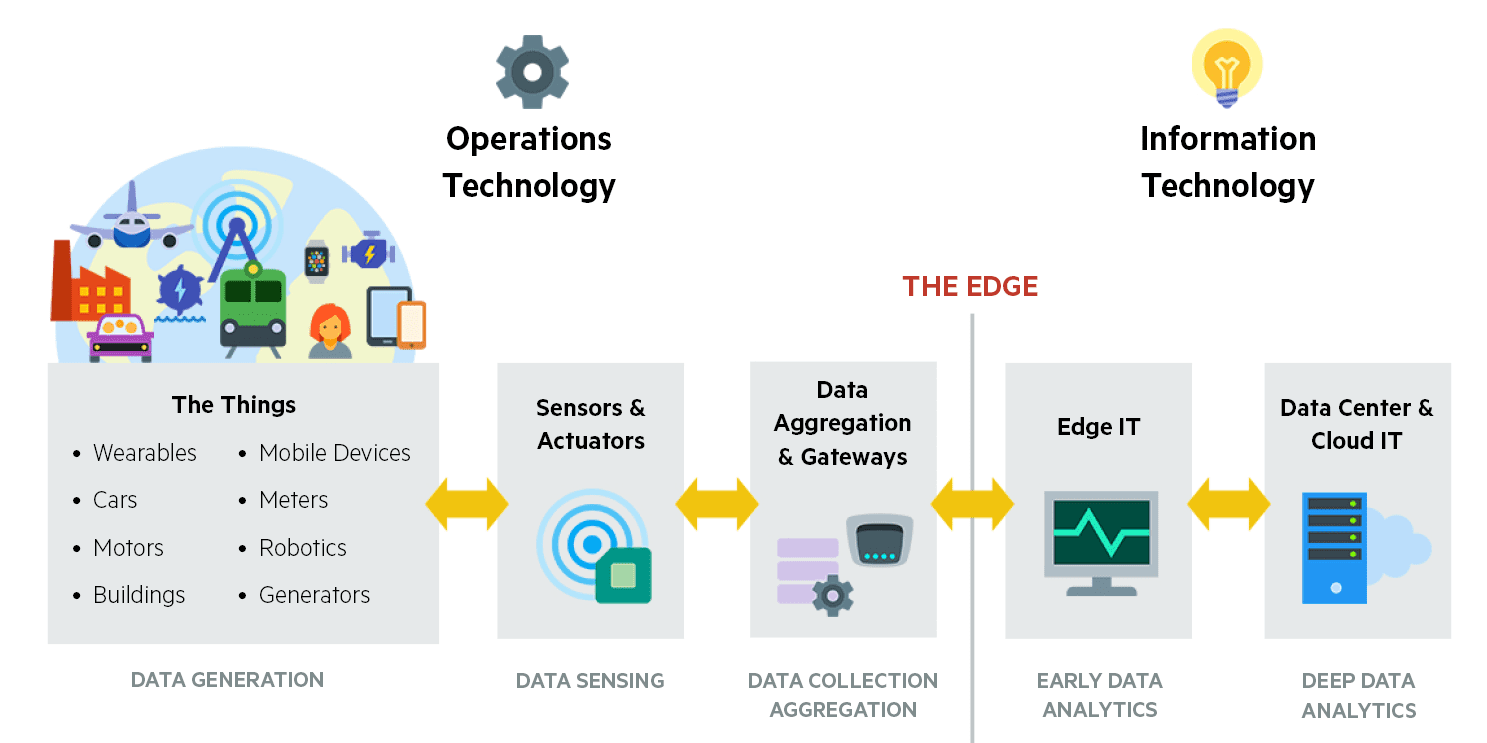
Distributed Architecture
The distributed computing architecture includes IoT, Edge, and Fog computing. In a distributed computing architecture, the processing and storage of data are spread out across multiple devices, servers, and data centers. This architecture enables businesses to process large volumes of data quickly and efficiently without overwhelming a single device or server.
In the case of IoT, Edge, and Fog computing, the architecture is designed to enable data processing and analysis at the network's edge, closer to the data source, rather than sending all data to the cloud for processing.
This reduces latency, enhances security, and enables faster decision-making. Therefore, IoT, Edge, and Fog computing can be considered subcategories of the distributed computing architecture. They focus on bringing computing power and analytics closer to the data source rather than relying solely on centralized computing resources.

AI/ML Services
Consulting businesses that offer AI and ML services typically provide end-to-end solutions that cover the entire spectrum of AI and ML development, from data preparation and modeling to deployment and monitoring. Some key services include:
- Strategy and Roadmap: Helping businesses to identify AI and ML use cases and develop a roadmap for implementing AI and ML solutions that align with their business goals.
- Data Preparation: Working with businesses to prepare and clean their data to ensure that it is accurate, complete, and reliable for AI and ML models.
- Model Development: Using machine learning algorithms and techniques to develop AI and ML models that can be used to solve specific business problems and drive value.
- Model Training and Validation: Training and validating the models to ensure they are accurate, reliable, and robust enough to be used in production environments.
- Deployment and Integration: Deploying the models into production environments and integrating them with existing systems and processes.
- Monitoring and Maintenance: Monitoring the performance of the models and providing ongoing maintenance and support to ensure that they continue to deliver value.
- Security and Compliance: Ensuring the AI and ML solutions comply with relevant regulations and standards.
We help clients to navigate the complex and rapidly evolving world of AI and ML and deliver solutions that drive real business value.
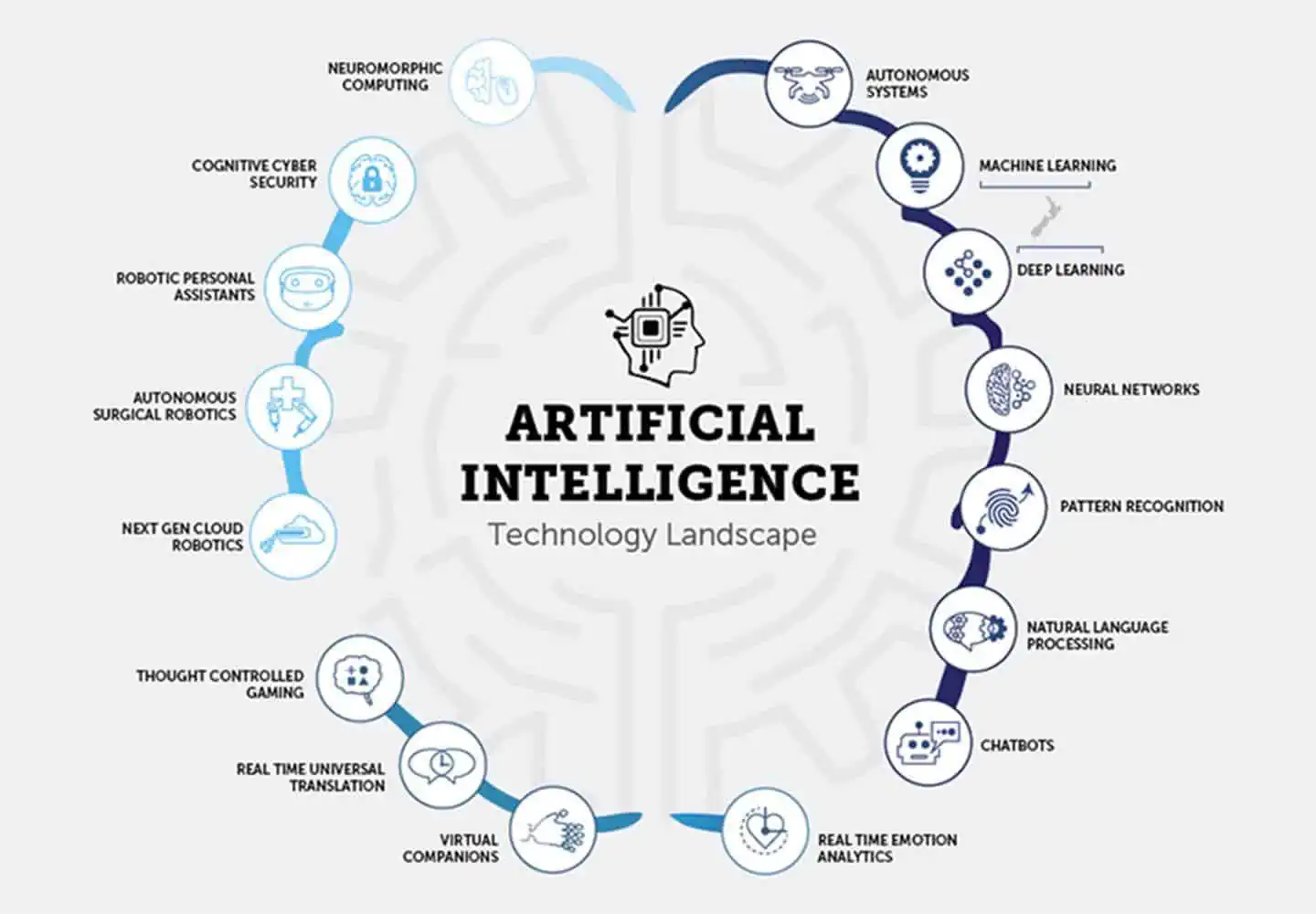
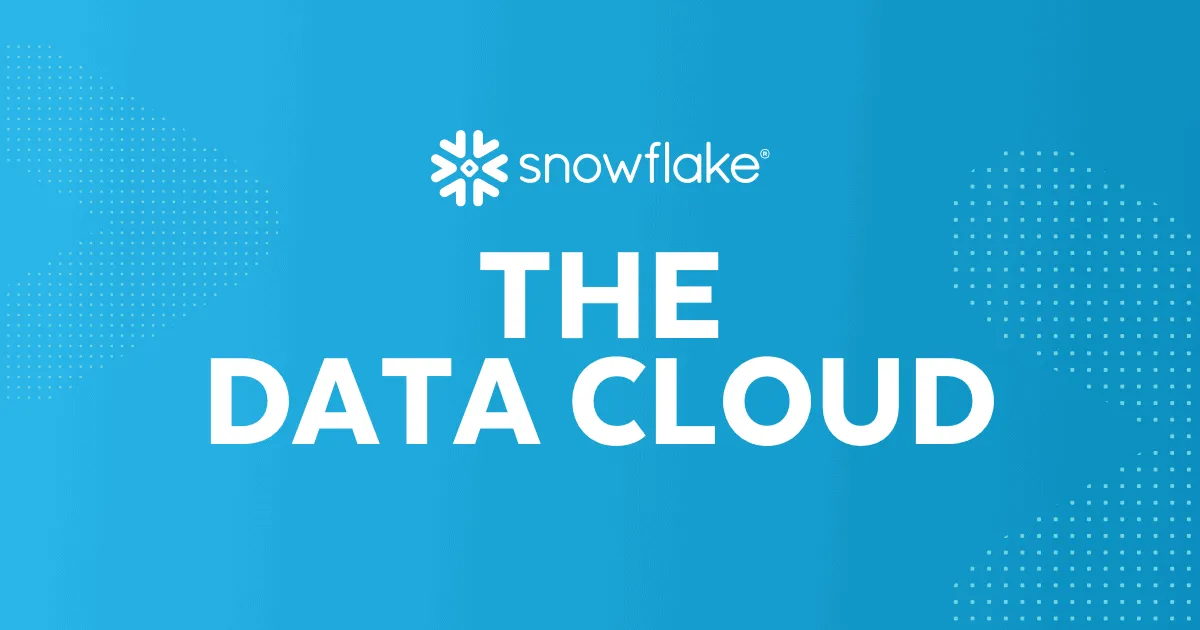
Deep Learning, Computer Vision and NLP Services
Deep learning, computer vision, and natural language processing (NLP) are three of the most critical fields in artificial intelligence. As a result, we offer our services often provide a range of solutions in these areas, including:
- Deep Learning: Developing deep learning models for various use cases, such as image recognition, speech recognition, and natural language processing which may include working with a range of deep learning frameworks such as TensorFlow, Keras, and PyTorch.
- Computer Vision: Developing computer vision solutions for various industries and applications, such as object detection, image segmentation, and facial recognition, may include working with computer vision frameworks such as OpenCV, YOLO, and Caffe.
- Natural Language Processing (NLP): Developing NLP solutions for various applications, such as sentiment analysis, language translation, and chatbots which may include working with NLP frameworks such as NLTK, Spacy, and Gensim.
- Data Preparation and Management: Preparing and managing large volumes of data for deep learning, computer vision, and NLP models, which may include working with big data technologies like Hadoop, Spark, and Cassandra.
- Model Training and Validation: Training and validating deep learning, computer vision, and NLP models to ensure they are accurate and reliable.
- Model Deployment and Integration: Deploying the models into production environments and integrating them with existing systems and processes.
- Monitoring and Maintenance: Monitoring the performance of the models and providing ongoing maintenance and support to ensure they continue to deliver value.
By offering deep learning, computer vision, and NLP services, we help customers harness AI's power and transform their businesses.
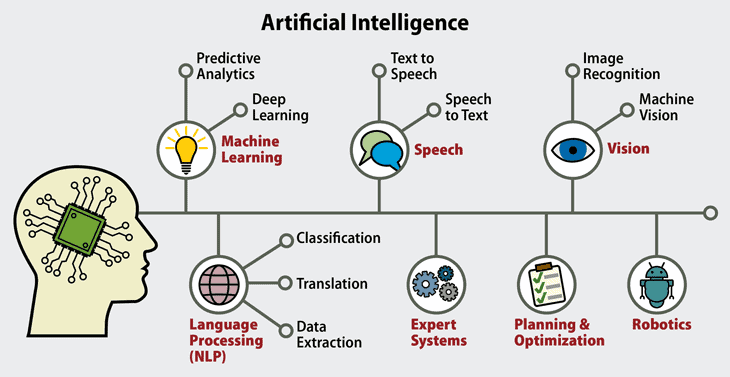
AI Based Application
AI-based application development services are designed to help businesses create intelligent applications that can solve complex problems, drive innovation, and improve operational efficiency. We offer AI-based application development services and typically provide a range of solutions, such as:
- Custom AI Application Development: Developing custom AI applications tailored to the business's specific needs and requirements.
- Machine Learning: Developing machine learning algorithms and models to solve complex business problems and generate insights.
- Deep Learning: Developing deep learning models for applications such as image recognition, speech recognition, and natural language processing.
- Natural Language Processing (NLP): Developing NLP applications such as chatbots, sentiment analysis, and language translation.
- Computer Vision: Developing computer vision applications such as object detection, image segmentation, and facial recognition.
- Data Preparation and Management: Preparing and managing large volumes of data for use in AI applications.
- Model Training and Validation: Training and validating AI models to ensure accuracy and reliability.
- Model Deployment and Integration: Deploy AI models into production environments and integrate them with existing systems and processes.
- Monitoring and Maintenance: Monitoring the performance of AI applications and providing ongoing maintenance and support to ensure they continue to deliver value.
With our AI-based application development services, we help clients to create intelligent applications that can drive business value, improve customer experience, and enhance their competitive advantage.
ERP, CRM, Custom and Legacy Integration
Integration with ERP (Enterprise Resource Planning), CRM (Customer Relationship Management), and legacy and custom systems is critical to AI-based application development services.
By integrating AI solutions with these systems, businesses can unlock new insights and opportunities to drive growth, improve efficiency, and enhance the customer experience.
Our AI-based application development services typically provide a range of integration solutions, such as:
- ERP Systems: Integrate AI solutions with ERP systems, such as SAP, Oracle, and Microsoft Dynamics, to provide insights into business operations, automate processes, and improve decision-making.
- CRM Systems: Integrate AI solutions with CRM systems, such as Salesforce, ServiceNow, Zoho, and HubSpot, to provide personalized customer experiences, automate sales and marketing processes, and improve customer retention.
- API Development: Developing custom APIs that enable AI solutions to integrate with other systems and applications, such as billing systems, inventory management systems, and supply chain management systems.
- Data Integration: Integrate data from various sources, including ERP, CRM, custom, and legacy systems, to provide a holistic view of business operations and customer interactions.
- Cloud Integration: Integrating AI solutions with cloud-based platforms, such as AWS, Azure, and Google Cloud, to enable scalable and flexible solutions that can adapt to changing business needs.
Our integration services, can help their clients unlock AI solutions' full potential and create seamless, integrated workflows that can drive business value and enhance the customer experience.
Data Governance and Security
Data governance and security are critical components of AI/ML solutions offered by consulting businesses. To ensure that AI/ML solutions are accurate, reliable, and secure, we offer a range of data governance and security services, such as:
- Data Quality Management: Implementing processes and tools to ensure that data used in AI/ML models are accurate, complete, and reliable.
- Data Privacy and Security: Ensuring that sensitive data is protected and compliant with relevant regulations and standards, such as GDPR, HIPAA, and CCPA.
- Access Control: Implementing policies and tools to manage access to data and AI/ML models, ensuring that only authorized users can access and modify data.
- Encryption: Implementing encryption techniques to protect data in transit and at rest.
- Model Explainability: Ensuring that AI/ML models are transparent and explainable and do not discriminate against protected classes of people.
- Auditing and Compliance: Conduct regular audits and ensure AI/ML solutions comply with relevant regulations and standards.
- Disaster Recovery: Implementing processes and tools to ensure that data and AI/ML models can be recovered during a disaster or other disruption.
By offering data governance and security services, we help our clients build AI/ML solutions that are accurate, reliable, and secure which helps businesses reduce risk, increase efficiency, and confidently drive innovation.
AI for Quality Assurance
Software testing AI for QA (Quality Assurance) is an emerging field that leverages the power of artificial intelligence to automate and improve the testing process. Consulting businesses that offer software testing AI for QA services typically provide a range of solutions, such as:
- Test Case Generation: Using AI algorithms to generate test cases automatically based on the system requirements, ensuring that all possible scenarios are tested.
- Test Case Optimization: Using machine learning algorithms to optimize test cases and ensure that the most critical parts of the system are tested first.
- Test Automation: Using AI to automate the testing process and reduce the time and effort required to test software applications.
- Bug Detection: Using machine learning algorithms to detect bugs and defects in software applications, improving the accuracy and speed of bug detection.
- Performance Testing: Using AI to simulate real-world scenarios and test the performance of software applications under different conditions.
- Predictive Analytics: Using machine learning algorithms to analyze data from previous testing cycles and predict potential issues and defects.
- Test Management: Using AI to manage and track test cases, results, and defects, ensuring that the testing process is efficient and effective.
AIOps
AIOps, or AI for IT Operations, is a field that leverages the power of AI and ML to automate and optimize IT operations. Our AIOps services typically provide a range of solutions, such as:
- Predictive Analytics: We use machine learning algorithms to analyze data from IT systems and predict potential issues and failures before they occur.
- Root Cause Analysis: Using AI to identify the root cause of IT incidents and failures, enabling faster resolution and minimizing downtime.
- Performance Monitoring: Using AI to monitor the performance of IT systems and applications and detect anomalies or deviations from normal behavior.
- Log Analysis: Using machine learning algorithms to analyze logs and identify patterns and anomalies, enabling faster troubleshooting and issue resolution.
- Event Correlation: Using AI to correlate events from different IT systems and applications, enabling faster and more accurate problem resolution.
- Automation: Using AI to automate routine IT tasks and processes frees IT staff to focus on more strategic activities.
- Cloud Management: Using AI to manage and optimize cloud-based IT infrastructure, ensuring that resources are allocated efficiently and cost-effectively.
By offering AIOps services, we help our clients improve their IT operations' efficiency, reliability, and scalability, reduce the risk of downtime and service disruptions, and enhance the overall user experience.
We can help you
Our AI/ML services cover a wide range of solutions, from strategy and roadmap development to custom AI application development and integration with ERP/CRM systems. We are also committed to providing top-notch data governance and security services to ensure our solutions are accurate, reliable, and secure.
ExterNetworks is dedicated to delivering innovative and effective AI/ML solutions that meet our client's unique needs and challenges. Whether you want to implement AI/ML solutions to improve your operations, enhance your customer experience, or drive innovation, we are ready to help.
Contact us today to learn how we can help you transform your business with AI/ML solutions.



